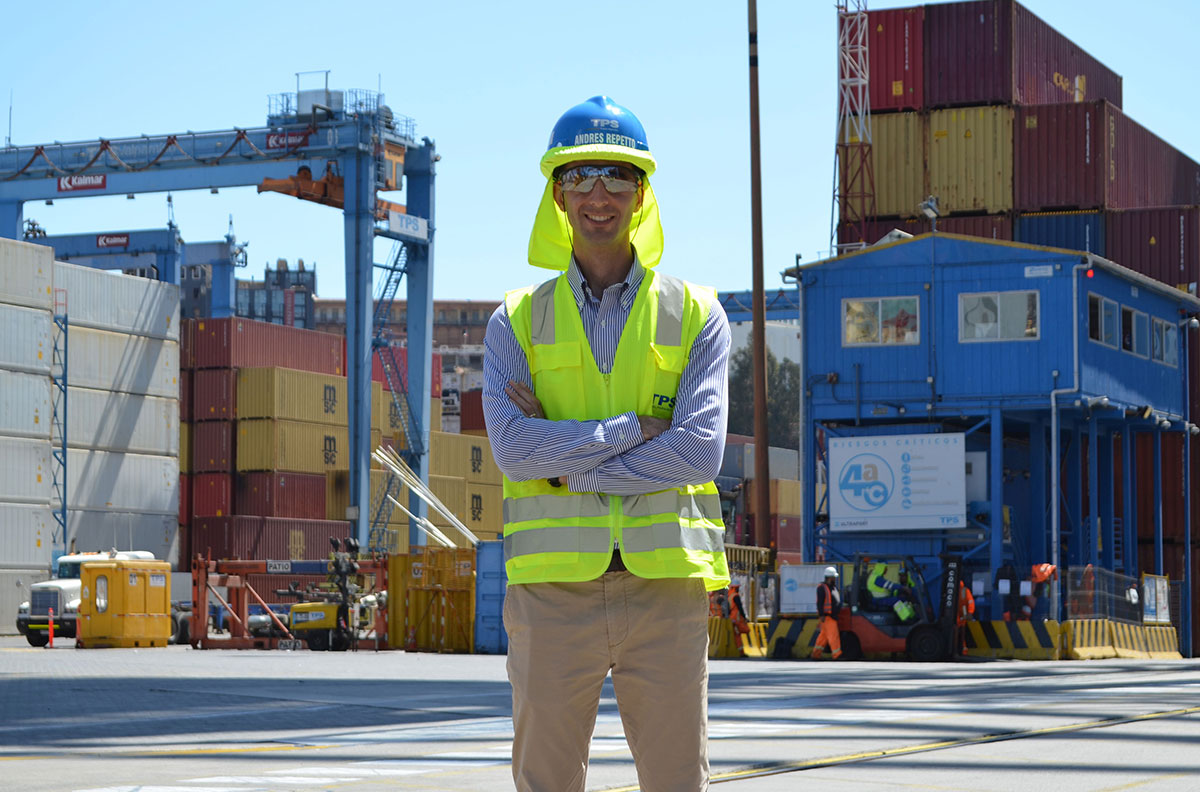Andrés Repetto, TPS Operations Manager, together with Trans-Port 2021, reviews the main challenges of the port terminal over more than 20 years of operation in support of Chilean international trade. In a context where companies have made progress in deepening their internal gender equality policies, how is this type of initiative assessed within TPSV and if it is part of its corporate sustainability strategy? At TPS, sustainability has been the foundation of growth throughout our more than 20 years of concession. We know that we are a fundamental part of the logistics chain of foreign trade and we are aware of the responsibility that falls to us in the development of this sector so relevant to the country’s economy. When we talk about sustainable development, a diverse company is a key factor; therefore, addressing gender equity issues is within our focus. In the case of TPS, around 15% of our staff are women, a proportion that stands out compared to the 2% of women who work in the maritime port sector worldwide, according to figures from the International Maritime Organization (IMO); and our commitment is to continue in that way, always ensuring that our selection processes allow diversity in the application from its origin. TPS currently has a balanced executive team in terms of gender, with women in management and leadership roles. Another relevant aspect from the general perspective of equality is that in TPS there is no salary gap between men and women, since salaries are established according to the position that each person holds. What types of labor practices has TPSV identified as part of its modernization process, and what role do they play in aspects such as continuous improvement of operations, security and digital transformation? TPS is a terminal limited in terms of space and inserted in the heart of Valparaíso, therefore, both characteristics constantly challenge us to keep searching for solutions in innovation and technology to improve its efficiency. In this context we are always in a process of continuous improvement, modernizing both our processes and equipment, resulting in increased safety, quality, efficiency and productivity. All changes present challenges, and since the procedures are carried out by people, a critical step is to bring them closer and familiar with them through testing and white runs before launching production systems. A large part of the new technologies that we have implemented address opportunities for improvement associated with manual processes. When a technology solves a problem that was common to a person, the reception of that technology is positive. On the other hand, the pandemic meant adapting practically all the processes of our activity, which we successfully achieved thanks to the commitment of our collaborators, who assumed from the first moment the mission of continuing to work so that the country could continue its operation. Our greatest satisfaction, in this sense, is having been able to provide our workers with everything in our power to protect their health. Without a doubt, the safety of people and the operation was the great axis around which all our activities revolved throughout the pandemic. As it is one of the pillars of our culture, this meant reinforcing the programs that we had been working on for some time with our collaborators, companies that are part of the operation and contractors; as well as implementing new projects, with a comprehensive vision that encompasses the health care of all people, the care of the environment and the prevention of accidents. The pandemic has also accelerated the digitization of executive work, as it has led us to interact in digital meetings and have conversations on whiteboards or digital applications, which has worked very well. Likewise, at TPS we like to digitize and develop software and applications to solve our problems and there are still many opportunities to deepen digitization in those processes that require typing, understanding by this, the manual processes that become more complex with the increase in volumes of cargo. TPS COMPANY INFORMATION Terminal Pacífico Sur Valparaíso, TPS, is a relatively young company but with a lot of experience, thanks to the trajectory of Ultramar and above all to the skills and professionalism of all the people who work at the Terminal. In 2020 we celebrate 20 years as concessionaires of Terminal 1 of the port of Valparaíso, which in turn is managed by the Port Autorithy of Valparaíso (EPV), which belongs to the Public Companies System (SEP). In these 20 years, we have moved more cargo than in the entire history of Valparaíso, which for centuries has been the main port of the country. Our concession contract, which runs until December 31, 2029, considers the operation and administration of Terminal 1, designed to receive container and multipurpose ships, as well as passenger ships. Contribute to people’s quality of life through international trade, in a sustainable way and with operational excellence. The TPS facility is approximately 15 hectares, which compared to other port terminals in the world is a small area; but we are great in efficiency, since we move a lot of cargo in relation to the area we have. The Terminal has operational areas such as the Berth Front, the yard where the cargo is stored, the Gates or accesses, etc .; and administrative areas, where the offices are located. TPS has several accesses for the different functions. In addition, there is a TPS office in the Logistics Support Extension Zone (ZEAL) in the upper part of the city. The services provided by TPS are mainly divided into services to ships and services to cargo.
